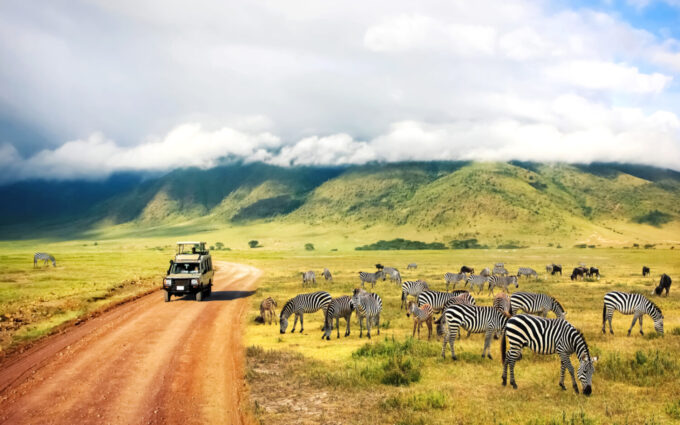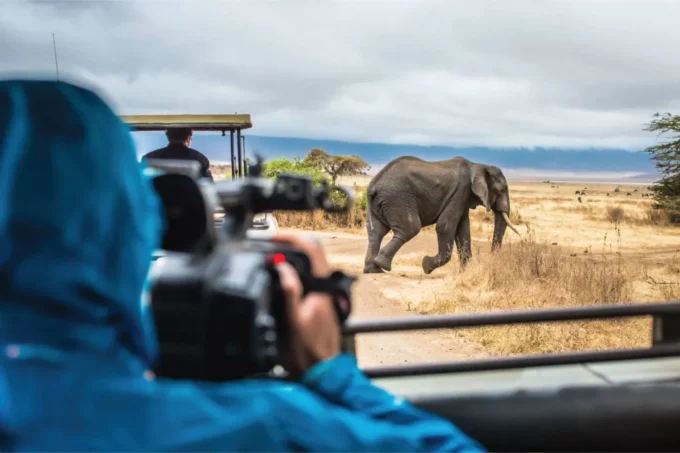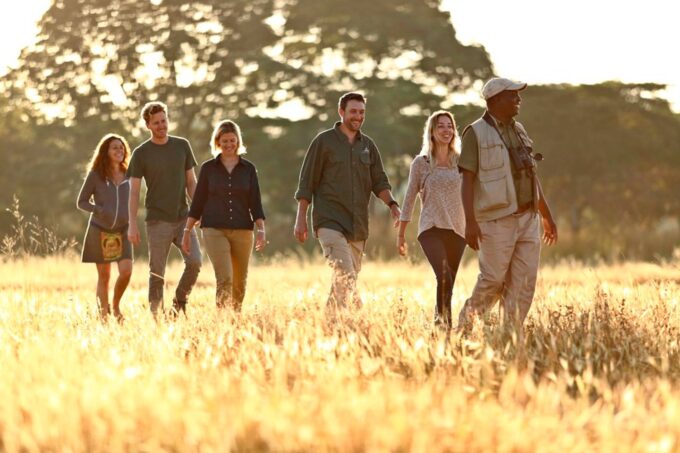Embarking on a safari is akin to stepping into a vast, untouched world where nature sings its loudest. Whether you’re a seasoned traveler or it’s your first time planning this kind of adventure, 2025 brings opportunities to witness the wild in all its majesty. This comprehensive guide aims to direct you towards your dream adventure, from iconic landscapes to understanding what it truly means to safari sustainably.
Top African Safari Destinations

Source: travellersworldwide.com
Africa is vast, with myriad landscapes waiting to be explored. According to Safari Specialist, the favorite for many remains Kruger National Park in South Africa. Renowned for its biodiversity, the park guarantees sightings of the Big Five. Just north, Zimbabwe’s Mana Pools National Park offers walking safaris that allow enthusiasts to get up close with wildlife. Eastwards, the sprawling plains of Serengeti in Tanzania await, with the grandeur of wildebeest migration – a spectacle not to be missed.
Turning the compass south, Namibia’s Etosha National Park stands out with its salt pans and unique desert-adapted species. Venturing west, Botswana’s Okavango Delta offers an oasis teeming with life, where elephants wade through crystal-clear waters. The rainforests of Central Africa, notably Uganda and Rwanda, call out with the promise of a different kind of experience: tracking mountain gorillas in their natural habitat.
Safari Planning Essentials
Embarking on a journey to Africa requires thorough preparation. First and foremost, identify the prime time to visit. While the dry season often brings better wildlife viewing, the wet season lends landscapes a verdant charm, replete with newborn animals and vibrant birdlife. Health precautions, including vaccinations and malaria prophylaxis, are pivotal. Engage in comprehensive research or consult a travel clinic.
Language and cultural understanding enhance the safari experience. Familiarize yourself with basic phrases in local dialects, making connections with community members smoother. While English is widely spoken, a simple greeting in Swahili or Zulu can bridge gaps. Safety remains paramount. Ensure you are well-informed about regional advisories and maintain awareness of your surroundings.
Wildlife and Safari Experiences

Source: gorilla-tracking-uganda.com
One can’t merely generalize Africa’s wildlife. Each region offers something distinctive. The savannahs teem with lions, leopards, and vast herds of herbivores. Grassland ecosystems provide an arena for predator-prey dynamics, exemplified by cheetah chases or lion pride hunts. Forested areas, on the other hand, house primates like chimpanzees and gorillas, painting a canvas of biodiversity.
Yet, beyond mere observation, participation defines a safari. Engage in bush walks, guided by locals who unveil the mysteries of the ecosystem. Night drives illuminate the nocturnal world, revealing creatures like aardvarks and bush babies. For those seeking the extraordinary, hot air balloon rides over sweeping plains or horseback safaris provide unparalleled perspectives.
While mammals often steal the show, avian enthusiasts find a haven in Africa. The continent plays host to over 2,500 bird species, with regions like East Africa boasting migrations of flamingos, creating pink-hued horizons. Whether you’re keen on raptors, songbirds, or waterfowl, every safari region sings a unique bird song.
Safari Accommodation Options
A spectrum of lodging awaits the intrepid traveler. On one end, luxury lodges offer opulence amid the wilderness, complete with gourmet dining and spa treatments. These establishments often provide private game drives, ensuring exclusivity. At the heart of the spectrum, tented camps combine comfort with the authentic ambiance of canvas walls and roaring campfires.
For those with a tight grip on their purse strings, public rest camps and self-catering chalets offer affordability without compromising the safari spirit. These accommodations provide communal cooking facilities and are usually positioned near prime wildlife spots. Embracing the wild, bush camps, and mobile safaris immerse travelers deep into nature. By relocating every few days, one can trace migration paths or follow specific wildlife herds.
Safari Packing List

Source: secretafrica.com
Equip yourself appropriately for the adventure ahead. Lightweight, neutral-colored clothing is essential to blend with the environment and to counteract the African sun. Breathable materials, including hats and scarves, provide protection against both sun and dust. With temperature fluctuations, layers are your ally; early morning game drives can be chilly.
Footwear demands careful consideration. Sturdy hiking boots serve dual purposes – game walks and navigating uneven terrain at campsites. Don’t forget to pack binoculars – they transform distant animal dots into detailed marvels. While most lodges provide mosquito nets, packing repellents and a personal net ensure peace of mind.
Refrain from overpacking. Many safaris involve light aircraft transfers with strict luggage limits. Opt for soft duffel bags instead of hard cases. Finally, keep essentials within arm’s reach: passport, tickets, medications, and valuable equipment.
Choosing the Right Safari Operator

Source: timbuktutravel.com
Selecting a trustworthy operator is paramount. Begin with online reviews, but dive deeper by soliciting feedback from past travelers in dedicated forums. Credibility stems not just from positive reviews, but from how operators address criticisms. Choose outfits that prioritize small groups, ensuring personalized experiences and reduced ecological impact.
Credentials matter. Affiliations with recognized bodies, such as the African Travel and Tourism Association, add an assurance layer. Furthermore, inquire about guide qualifications. A knowledgeable guide can elevate your safari, transforming it from a sightseeing tour to a deep ecological immersion.
Sustainable Safari Practices
The privilege of experiencing raw nature comes with responsibility. Begin with carbon offsetting, an increasingly accessible practice to counteract the emissions from flights to and from Africa. Once on the ground, minimize plastic usage. Reusable water bottles and bags negate the need for disposables.
As enchanting as wildlife encounters are, maintaining respectful distances ensures animal well-being. Avoid operators that promise baited or guaranteed close-ups, as these can stress animals. Respect local cultures and traditions. This includes dressing modestly, seeking permission before taking photographs, and buying local crafts to support community enterprises.
Opt for eco-friendly lodges that emphasize water and energy conservation. These establishments often source locally, reducing carbon footprints and boosting local economies. By endorsing these practices, you not only revel in the beauty of Africa but ensure its preservation for generations to come.
Final Thoughts
As you stand on the brink of your 2025 African odyssey, remember that it’s more than just ticking off animal sightings. It’s about immersing oneself in the rhythm of a continent that pulses with life, tradition, and stories waiting to be discovered. Embrace each moment, from the roar of a lion to the smile of a local guide, and let Africa etch its indelible mark on your soul. See what other locations you should visit in Africa and don’t miss out on beautiful nature. Happy travels!







